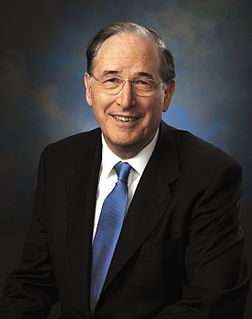Top 19 Quotes & Sayings by Jay Rockefeller
Explore popular quotes and sayings by an American politician Jay Rockefeller.
Last updated on December 21, 2024.
Saddam's existing biological and chemical weapons capabilities pose a very real threat to America, now. Saddam has used chemical weapons before, both against Iraq's enemies and against his own people. He is working to develop delivery systems like missiles and unmanned aerial vehicles that could bring these deadly weapons against U.S. forces and U.S. facilities in the Middle East.


















